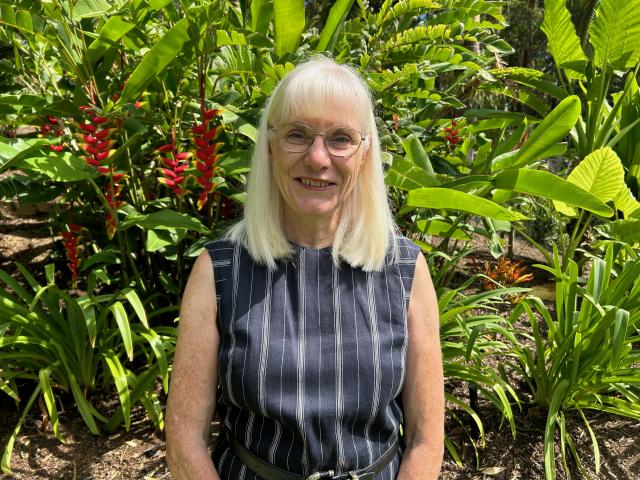Professor Emeritus Debra Claire Henly has always been a trailblazer, leaving school at 17 to study science at university, continuing on an illustrious academic path in the male-dominated field of health sciences, rising to the position of deputy vice chancellor and capping it off this year with a well-deserved Member of the Order of Australia (AM).
The Emeritus Professor who has a PhD in biochemistry retired from Griffith University in 2021. Her long career began as a lecturer in biochemistry at Flinders University in 1984, then the University of Queensland (UQ) in 1995, progressing to a role as Professor of Biomedical Sciences at Bond University before moving to Griffith University to the position of deputy vice-chancellor.
“Obviously I’m very pleased,“ Professor Henly told Noosa Today, of her Australia Day award, as she touched on some of the standout elements in a stellar career in education administration and research and some of the achievements of which she is most proud.
Professor Henly took on her first leadership role at UQ in education in the School of Molecular and Microbial Science before moving to Bond University to be charged with setting up the medical program, leading it to its establishment and accreditation.
“It was a very exciting time, being in a privileged position of starting a program from scratch,“ she said.
When she moved from Bond to Griffith University to take on the role of Pro Vice Chancellor of the Sciences Faculty at Griffith, she became the only woman in Queensland at the time to lead a science and engineering faculty.
As her promotions took her from teaching to more administrative roles she maintained a committment to equity, diversity and inclusion, identifying shortfalls for the future of a skilled science and medical workforce.
“We have seen a decline in the number of students studying science in high school,“ she said.
“Part of my work was reviewing where we are, identifying barriers to studying science. It has a lot to do with teaching out in the field, disadvantages and real demographic differences.
Prof Henly said while primary school children are fascinated by science, the enthusiasm diminishes among high school students, a factor the member of the Queensland State Advisory Council, Committee for Economic Development of Australia has been able to advise government requires action.
“We’re missing a whole cohort of people. In the next 10 years we will be short hundreds of thousands,“ she said. “We’ll not be able to function without a skilled workforce.“
When the Covid pandemic hit in 2020, Prof Henly, as senior deputy vice chancellor of Griffith University, was presented with “huge challenges“.
One of the priorities was moving teaching from the lecture theatres to remote learning which they achieved.
“We did it in two and a half weeks without stopping teaching. It kept the uni running,“ she said.
Prof Henly was also proud of the role of the National Science and Technology Council, which is chaired by the Prime Minister, and of which she was a member from 2019-2022, in advising the government of state-of-the-art measures that could be undertaken to reduce the spread of Covid.
In one instance the council advised government that local governments would be able to pick up evidence of Covid infections by testing sewerage, and it was adopted.
Prof Henly recently bought a “beautiful property“ at Doonan which to retire.
Since moving away from academic life she has plans to continue mentoring other women in their careers as well as immersing herself in the care and rehabilitation of her land.







![[READER COMPETITION] – Win a family ticket to see The Riddle of Washpool Gully at the J](https://noosatoday.com.au/wp-content/uploads/2026/02/washpool-gully-1-100x70.png)

